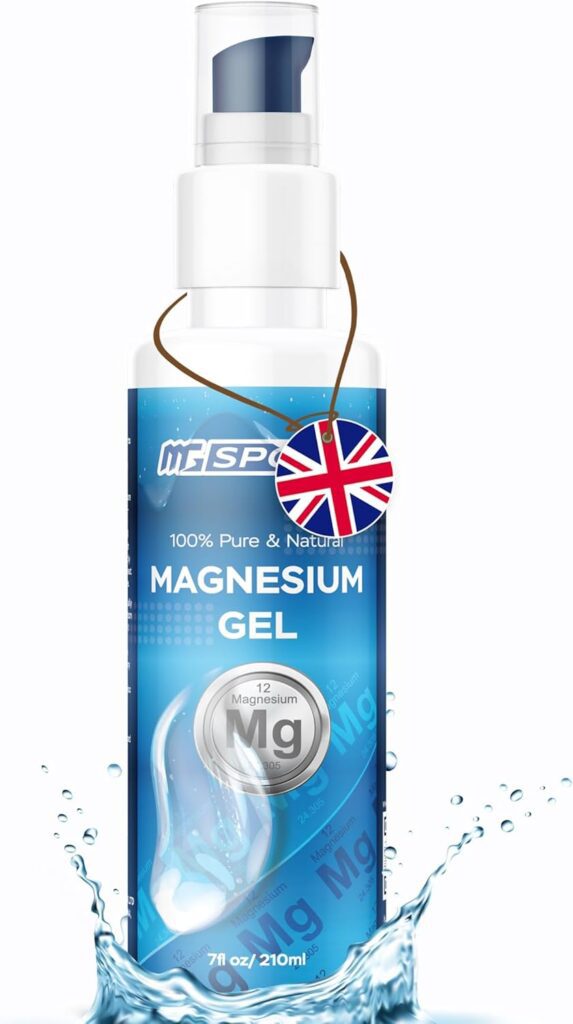Muscle soreness is a common issue that can arise after physical activity, intense exercise, or even from sitting in one position for too long.
While soreness is often a natural response to exertion, it can interfere with your daily activities and general well-being.
Understanding the causes of sore muscles and exploring effective ways to support them can help you recover faster and reduce discomfort.
In this post, we will explore 5 ways to ease sore muscles, starting with what causes them.
Let’s dive in!
What Causes Sore Muscles?
Sore muscles, especially after a workout or intense physical activity, are often caused by microscopic damage to muscle fibers, which occurs when muscles are pushed beyond their usual range or capacity.
This damage triggers an inflammatory response, which can lead to pain, stiffness, and swelling.
Some common causes of sore muscles include:
- Delayed Onset Muscle Soreness (DOMS): This typically occurs 12-48 hours after intense physical activity, especially when the body is not accustomed to the exercise.
- Overexertion: Overworking muscles without proper rest can lead to strain and soreness.
- Poor Posture or Overuse: Holding the body in a certain position for too long or repetitive movements can strain muscles, causing discomfort.
- Dehydration and Electrolyte Imbalances: Insufficient fluids and minerals can affect muscle function, making soreness worse.
Now that we understand the causes of sore muscles, let’s explore five effective ways to support sore muscles and relieve discomfort.
5 Ways to Ease Sore Muscles
1. Use Magnesium Gel
Magnesium gel is an excellent remedy for sore muscles due to its ability to be absorbed quickly through the skin.
Magnesium plays a key role in muscle relaxation and recovery, and applying a magnesium gel can help reduce muscle tension and inflammation.
The gel can be massaged directly into sore muscles to provide immediate relief, especially after exercise or a long day of physical activity.
Out of all of the magnesium gels I’ve tried, MGSport’s Magnesium Gel is my personal favorite.
Sourced from the therapeutic Dead Sea, this gel contains pure magnesium chloride for rapid absorption, delivering effective results without the itching or stinging that other magnesium oils may cause.
This gel is perfect for soothing muscle aches, relieving cramps, and enhancing relaxation before and after exercise, making it an essential part of your wellness routine.
With its high quality, pure ingredients, and quick absorption, MGSPORT’s Magnesium Gel provides immediate, soothing relief for sore muscles.
Simply press and apply, and you’re good to go!
2. Apply Heat or Cold Therapy
Heat and cold therapy are both highly effective for soothing sore muscles, and each has its own benefits.
Applying a cold compress or ice pack helps reduce inflammation and numb the pain, especially in the first 24 hours after muscle strain.
After that, switching to heat therapy can help increase blood flow, relax muscles, and promote healing.
A warm bath, heating pad, or hot towel can work wonders for alleviating muscle tightness and soreness.
3. Gentle Stretching and Yoga
Stretching and yoga are fantastic ways to support sore muscles by improving flexibility and circulation.
Gentle stretching helps to release muscle tension, promote blood flow, and increase range of motion, which can help prevent stiffness.
Yoga, with its focus on deep breathing and controlled movements, can also improve muscle flexibility and reduce overall discomfort.
4. Stay Hydrated and Replenish Electrolytes
Dehydration is a major contributor to muscle cramps and soreness.
Make sure to drink plenty of water throughout the day, especially after physical activity, to keep muscles hydrated and support recovery.
Additionally, replenishing lost electrolytes, such as potassium, calcium, and sodium, can help maintain muscle function and reduce cramping.
You can get electrolytes through sports drinks, coconut water, or foods like bananas and leafy greens.
5. Rest and Recovery
One of the most important ways to support sore muscles is to give them time to rest and recover.
Overworking sore muscles can worsen the condition and lead to injury.
Allow adequate rest between intense workouts or physical activities to give muscles time to heal.
Active recovery, like light walking or swimming, can also keep blood circulating without straining muscles further, aiding in faster recovery.
Supporting Sore Muscles
Sore muscles are a natural part of physical activity, but with the right approach, you can support discomfort and speed up recovery.
Using magnesium gel, applying heat or cold therapy, gentle stretching, staying hydrated, and prioritizing rest are all effective strategies to support sore muscles.
By incorporating these techniques into your recovery routine, you can maintain muscle health and keep your body feeling its best.
Thank you for reading!
Affiliate Disclosure
Some of the links on this site are affiliate links. This means that if you click on the link and purchase the item, we may receive an affiliate commission at no extra cost to you. I only recommend products or services that I believe will add value to my readers, however some (not all) do pay us to be on this blog. Your support and theirs helps keep this blog running, and I genuinely appreciate it.
Medical Disclaimer
The information provided on this website is for educational purposes only and is not intended as medical advice. This blog or the writer is not a licensed healthcare professional, and the content should not be used as a substitute for professional medical diagnosis, treatment, or advice. Always consult with your physician or other qualified healthcare provider before starting any new treatment or making any changes to your healthcare routine.
